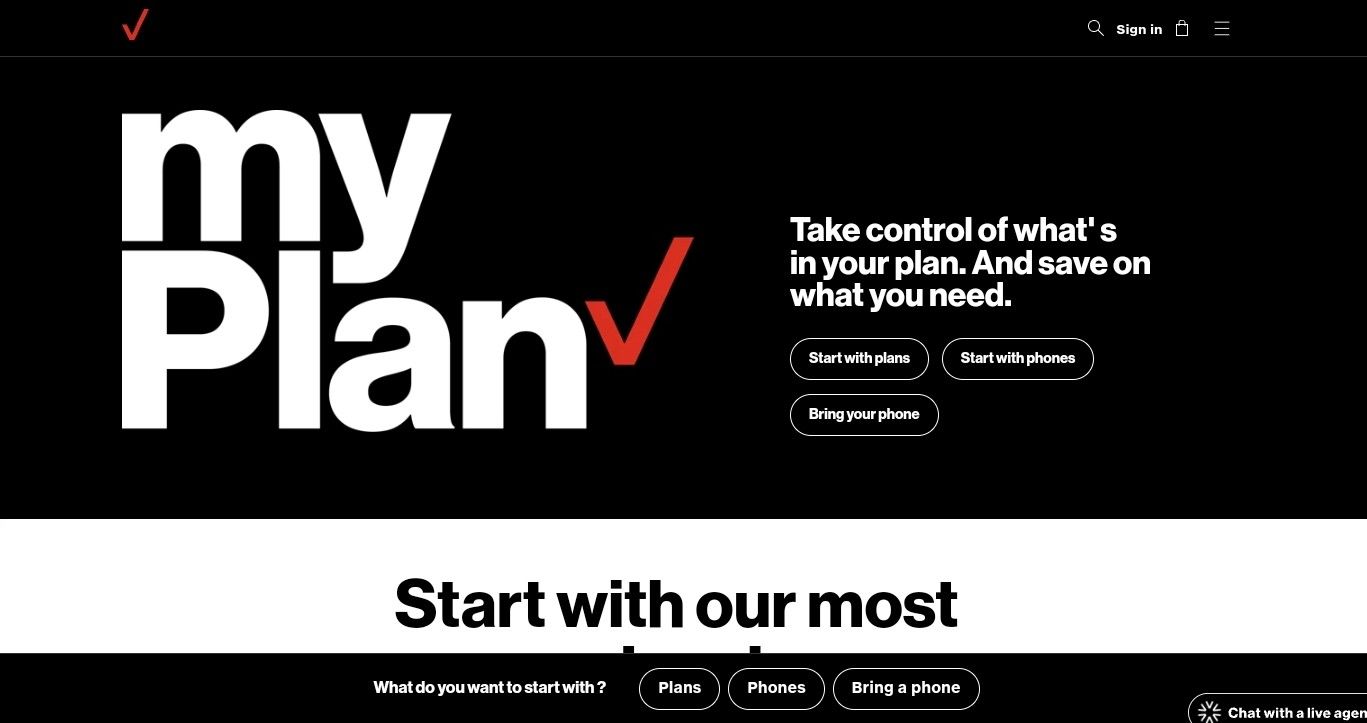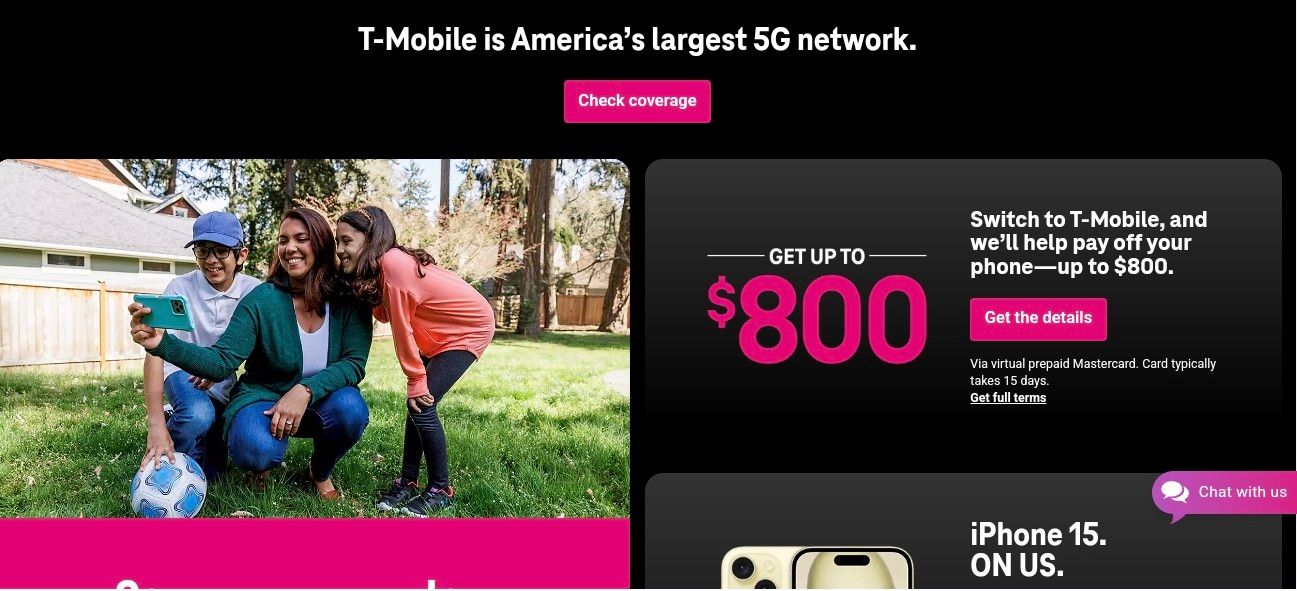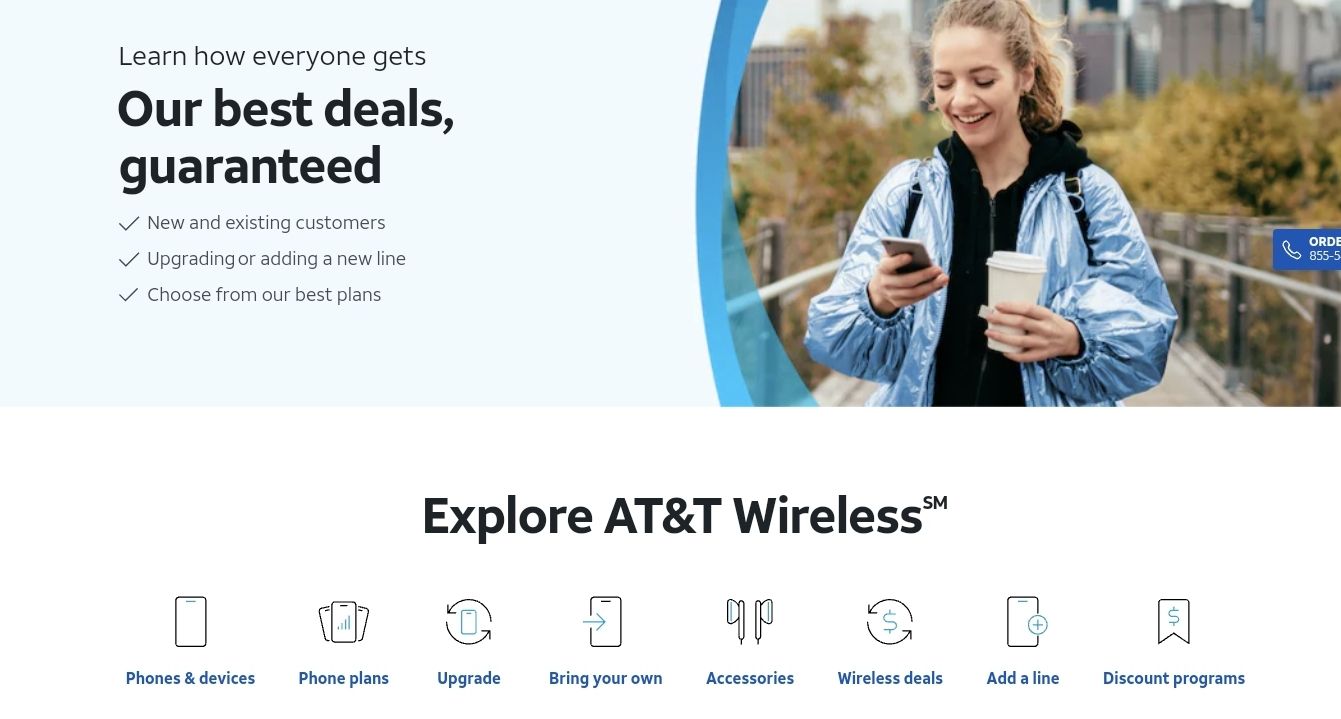 Software Tutorial
Software Tutorial
 Mobile Application
Mobile Application
 The Best Mobile Carrier for You: Verizon, AT&T, or T-Mobile?
The Best Mobile Carrier for You: Verizon, AT&T, or T-Mobile?
The Best Mobile Carrier for You: Verizon, AT&T, or T-Mobile?
There are really only three nationwide networks to pick from in the US: Verizon Wireless, T-Mobile, and AT&T. Most other carriers lease access to these networks to offer more bang for your buck. But which one should you choose? Well, that depends.
Verizon: The Best for Rural Areas

All carriers now offer unlimited data plans, discounts for having multiple lines, home internet bundles, and 5G speeds. Prices fluctuate to stay competitive, so it's no longer the case that one costs significantly more than the other. Verizon's base prices still tend to start a bit higher, but the gap closes as you tack on more perks.
Verizon has long offered a massive network with towers covering the largest land area. In the past, this meant that the network was your only option in many rural parts of the country. Thankfully, following T-Mobile's acquisition of Sprint, Verizon has competition in areas where it used to exercise a monopoly. Yet Verizon's network is still the largest and probably your safest bet if you live in or frequently visit rural areas.
Before its transition to 4G LTE and 5G, Verizon was a CDMA network incompatible with GSM, preventing you from swapping a SIM card between devices. With 3G gone, this has changed. Still, Verizon remains one of the more restrictive carriers, limiting which phone models can access their network.
Buying an unlocked phone is cheaper than going through a carrier in most cases, but Verizon's network tends to be compatible with fewer devices.
T-Mobile: The Best for Fast Speeds

T-Mobile's network used to be very spotty, limited primarily to cities and densely packed suburbs. You could expect excellent speeds and performance in cities, but you wouldn't be able to place a call if you ventured to places that interstate highways don't pass through.
Now, T-Mobile is competitive with Verizon in many rural parts of the country. In some places, its network is even stronger. In 2022, PCMag rated T-Mobile the strongest network in the US. It began the transition to 5G sooner than the other two, offering faster speeds to more customers.
T-Mobile used to compete with Verizon and AT&T by trying to undercut them in price. Now that T-Mobile's network is comparable to the other two, the carrier's prices are roughly the same.
You're free to take your SIM from one phone to another, and T-Mobile has long been one of the best options for people who prefer to buy unlocked phones (though if you buy your phone directly from T-Mobile, it will still be carrier-locked). It's also welcoming to Mobile Virtual Network Operators (MVNOs) like Google Fi and Red Pocket, where you can access T-Mobile's network for significantly less money.
T-Mobile bakes international travel to over 210 countries into its current non-prepaid plans. They land you plenty of data and unlimited text, with calls at 25 cents per minute. If you need international calling, T-Mobile's plans are significantly cheaper than those of Verizon and AT&T. If you leave the country regularly, T-Mobile is the way to go. Keep phone calls to a minimum, and your wallet will barely suffer.
AT&T: The Best Value

AT&T is the largest phone carrier in the US in terms of subscribers, but it offers neither the largest network nor the fastest speeds. It does provide the most affordable prepaid plans, enticing bundles, and plenty of discounts. In many instances, the carrier simply sells a service that is good enough for just the right price.
The network does a decent job of serving many smaller towns and rural counties. In some parts of the country, it's the best option, but that's not the case if you look at the country as a whole.
Like T-Mobile, AT&T tends to be a good choice for people who prefer to shop for unlocked phones. The story is different when it comes to international travel, as its prices are comparable to Verizon's.
What About Other Carriers?
The options don't end there. You may live within range of a regional carrier like US Cellular or in one of the areas where Dish Wireless, a newer player, is available.
For most of us, though, it's worth looking at subsidiaries and MVNOs.
The Best Subsidiaries
These are carriers who are owned by one of the big three:
- Visible: Unlimited data plans on Verizon's network starting at $25 a month.
- Mint Mobile: Some of the most affordable plans for people willing to buy a year of service upfront, all on T-Mobile's network.
- Cricket Wireless: Competitive low pricing on AT&T's network
The Best MVNOs
Most other carriers are MVNOs. They provide cell phone connectivity without building and maintaining their own infrastructure. Instead, they lease a nationwide carrier's network.
- Red Pocket: The most flexible plans available on any nationwide carrier. You can get a year of service for just $100 if you don't need more than 1GB of data.
- Google Fi: Plans start at $20 per month on T-Mobile's network, plus discounts on Google services. If you're curious, here's everything you need to know about Google Fi.
- Tello: One of the cheapest options available, with plans as low as $5 a month. This T-Mobile MVNO might be right for you if you're mostly connected to Wi-Fi.
MVNOs are often cheaper if you aren't a heavy data user. On the downside, these services lack carrier stores, so you have to be comfortable heading online and troubleshooting yourself.
There are so many factors to consider when deciding which mobile carrier is the best fit for you. Where do you live? How often do you travel? Do you stream music and movies over mobile data? Do you buy unlocked phones?
No company can claim to be the best carrier in the US for all purposes and in all areas. Your best bet is to try out a carrier's network before signing any long-term agreements.
The above is the detailed content of The Best Mobile Carrier for You: Verizon, AT&T, or T-Mobile?. For more information, please follow other related articles on the PHP Chinese website!

Hot AI Tools

Undresser.AI Undress
AI-powered app for creating realistic nude photos

AI Clothes Remover
Online AI tool for removing clothes from photos.

Undress AI Tool
Undress images for free

Clothoff.io
AI clothes remover

Video Face Swap
Swap faces in any video effortlessly with our completely free AI face swap tool!

Hot Article

Hot Tools

Notepad++7.3.1
Easy-to-use and free code editor

SublimeText3 Chinese version
Chinese version, very easy to use

Zend Studio 13.0.1
Powerful PHP integrated development environment

Dreamweaver CS6
Visual web development tools

SublimeText3 Mac version
God-level code editing software (SublimeText3)

Hot Topics
 1664
1664
 14
14
 1423
1423
 52
52
 1318
1318
 25
25
 1269
1269
 29
29
 1248
1248
 24
24
 Trump Just Delayed the TikTok Ban (Again)
Apr 11, 2025 am 10:48 AM
Trump Just Delayed the TikTok Ban (Again)
Apr 11, 2025 am 10:48 AM
TikTok's US ban is again delayed, this time until June 18th. President Trump announced on Truth Social a new executive order extending the deadline by 75 days, allowing more time for ByteDance to find a US buyer. This marks the second delay of the P
 AliExpress vs Taobao: A Comparison Guide for Cross-Border E-commerce
Apr 22, 2025 am 11:56 AM
AliExpress vs Taobao: A Comparison Guide for Cross-Border E-commerce
Apr 22, 2025 am 11:56 AM
Unlocking the Potential of AliExpress and Taobao: A Cross-Border E-commerce Guide AliExpress and Taobao, both under the Alibaba Group, dominate China's thriving e-commerce landscape. However, they cater to distinct markets and offer unique features.
 Customize Your Samsung With Their Most Popular 'Good Lock' Modules
Apr 19, 2025 am 11:22 AM
Customize Your Samsung With Their Most Popular 'Good Lock' Modules
Apr 19, 2025 am 11:22 AM
Unlock the Power of Good Lock: Three Must-Have Modules for Samsung Galaxy Customization Samsung Galaxy phone owners have access to the versatile Good Lock app, available on the Galaxy Store and Play Store. This free app offers extensive customization
 Tips for Understanding and Reducing Shipping Costs
Apr 22, 2025 am 11:22 AM
Tips for Understanding and Reducing Shipping Costs
Apr 22, 2025 am 11:22 AM
A comprehensive guide to reducing shipping costs for online shopping in DHgate Online shopping, whether for personal or commercial purposes, can be a considerable expense. Long-term success depends on understanding the various factors that contribute to these costs and adopting practical strategies to reduce them. This article provides a comprehensive guide on negotiating shipping costs and reducing delivery costs and finding affordable delivery options. Freight is not static, but is determined by a variety of factors, and understanding these factors is essential to reduce shipping costs. These factors include: distance International transportation involves customs formalities and longer distances, so it is usually more costly. Package size and weight: Items with larger weight or thickness are subject to additional delivery charges. Shipping speed: Faster transportation than standard or economical mode of transportation
 How to Identify and Verify Reliable Suppliers on Taobao
Apr 22, 2025 am 11:57 AM
How to Identify and Verify Reliable Suppliers on Taobao
Apr 22, 2025 am 11:57 AM
Selecting reliable Taobao suppliers is paramount for your dropshipping success. This guide outlines how to identify trustworthy vendors amidst Taobao's vast marketplace. 1. Mastering Taobao's Supplier Evaluation System Taobao's rating system uses th
 You Should Try Instagram's New 'Blend' Feature for a Custom Reels Feed
Apr 23, 2025 am 11:35 AM
You Should Try Instagram's New 'Blend' Feature for a Custom Reels Feed
Apr 23, 2025 am 11:35 AM
Instagram and Spotify now offer personalized "Blend" features to enhance social sharing. Instagram's Blend, accessible only through the mobile app, creates custom daily Reels feeds for individual or group chats. Spotify's Blend mirrors th
 WhatsApp Just Announced a Dozen New Features
Apr 17, 2025 am 11:25 AM
WhatsApp Just Announced a Dozen New Features
Apr 17, 2025 am 11:25 AM
The next time you open WhatsApp, you might notice some changes. As announced in a blog post on Thursday, the app is rolling out a dozen new features, affecting the chats, calls, and even the Updates tab. Here's what's new: Chat updatesGroup chats
 Blue Check Verification Is Coming to Bluesky
Apr 24, 2025 am 10:17 AM
Blue Check Verification Is Coming to Bluesky
Apr 24, 2025 am 10:17 AM
Bluesky Echoes Twitter's Past: Introducing Official Verification Bluesky, the decentralized social media platform, is mirroring Twitter's past by introducing an official verification process. This will supplement the existing self-verification optio



